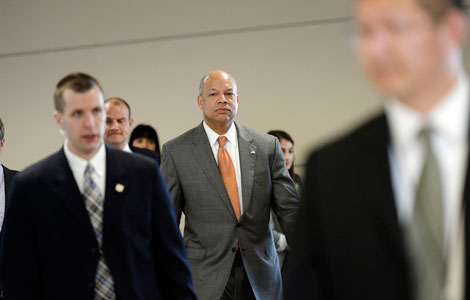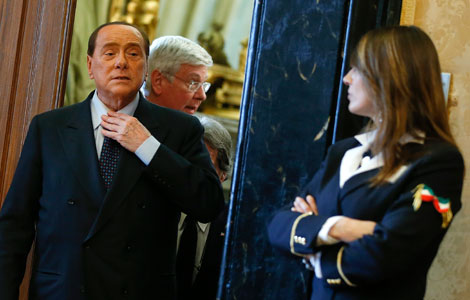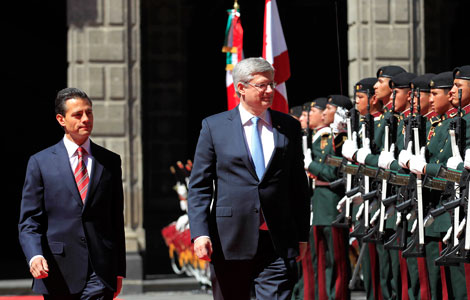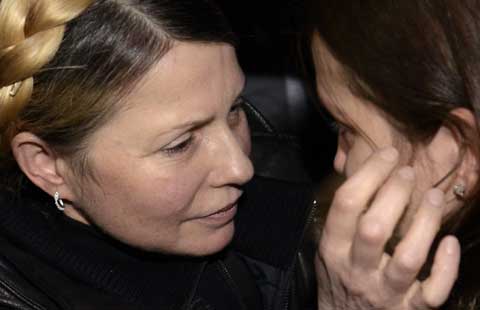

Ugandan Agriculture Minister Tress Bucyanayandi says he has no problem with China growing food in Africa to tackle its own growing food deficit.
A recent research paper by Standard Chartered PLC predicted that China would have to import 100 million tons of food a year within 20 to 30 years to avoid shortages.
The 75-year-old politician says there is surplus land in his country and the Chinese are welcome to farm it because Uganda operates an open door policy. "There is plenty of land, particularly in the northern parts of Uganda and much of it is idle," he says.

"Although the land belongs to people, they can enter into partnerships with the owners to develop it. We are running a liberal economy so there is no issue about them exporting the food back to China or the profit. They can take it," he says.
Bucyanayandi, who has a professorial air and a distinctly unhurried manner, was speaking over coffee and biscuits in the Ministry of Agriculture's office in Entebbe set among magnificent landscaped gardens. Built in 1927, it used to be the administrative center of the British-ruled Ugandan Protectorate.
The veteran politician says that one of the weaknesses of the country's agricultural system is that it fails to exploit the potential of commodities such as the Ugandan coffee he was pouring.
"Ugandan coffee though is good. I add honey to mine," he says, ladling a spoonful into his cup. "We don't manufacture instant coffee. You just see Nescafe on all the shelves here. Coffee is a major crop for us but we don't really add value to it."
The Chinese have become increasingly involved in agricultural projects in Africa. In March Chinese President Xi Jinping announced a $20 billion credit line over the next two years to strengthen cooperation in Africa in agriculture and other sectors.
So far in Uganda, most of China's involvement has come in the form of aid and assistance rather than any attempt to source food.
Since the end of 2012 more than 30 agricultural experts and technicians have been working in Uganda in such areas as agribusiness, horticulture and grain production.
One of the biggest Chinese agricultural projects in the country is a $5 million fish farming demonstration center on the outskirts of Kampala. It is run by the Huaqiao Fenghuang Group from Chengdu in Sichuan province.
"They have helped us set up a fish demonstration center which has been very important. We need to do things such as stock small fish eggs and also do fish cage farming but our primary requirement is to have fish feed (also manufactured at the center)."
Bucyanayandi says he has no problem with greater Chinese involvement in the agricultural sector. "Why not? They say they want to assist us so why not?" he asks. "Chinese investment in agriculture has already been important here and I would like to see more of its presence."
Bucyanayandi would be particularly keen to see a Chinese bank enter Uganda and offer loans to local farmers.
The Ugandan government has been under political pressure itself recently to provide such a bank to offer cheap loans. China's agricultural development banks are seen as a model to copy. "I have met a number of delegations from China and one wanted to set up an agricultural bank here. I contacted the Bank of Uganda about it and they have said if they wanted to set up an agricultural bank here they would be most welcome. They have sent them the forms," he says.
Very few agriculture ministers around the world are also respected agricultural experts like Bucyanayandi. He spent most of his career as a civil servant and was, in fact, director of agriculture at the ministry in the early 1990s.
After being an MP for Bufumbira County South in the Kisoro District of Uganda for the National Resistance Movement party since 2006, he got a call from President Yoweri Museveni two years ago, asking him whether he would take over the ministry.
"The only thing I could say was 'yes'. I didn't have the courage to say 'no'," he laughs. "The next thing you know is that you hear yourself on the radio as Minister of Agriculture."
The appointment meant him entering frontline African politics in his mid-70s, despite having effectively retired a decade earlier.
Contact the writers at [email protected] and [email protected].









